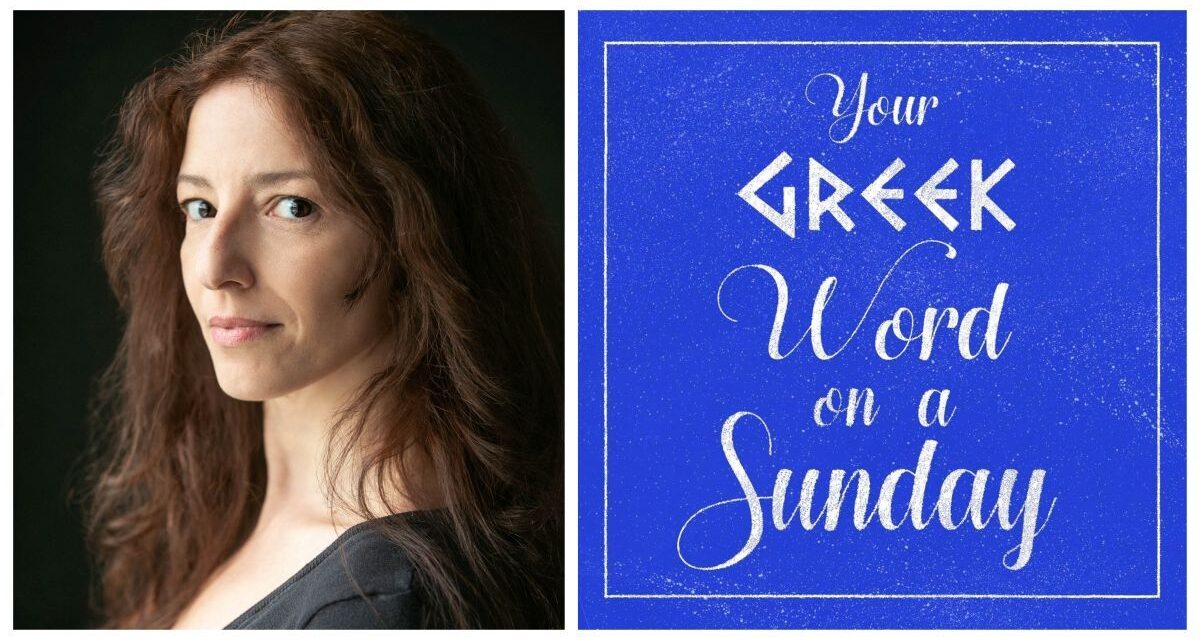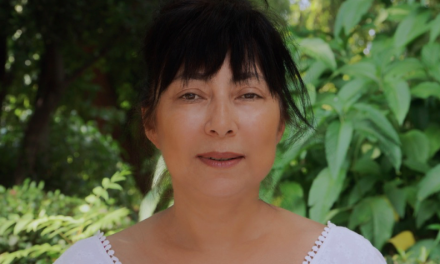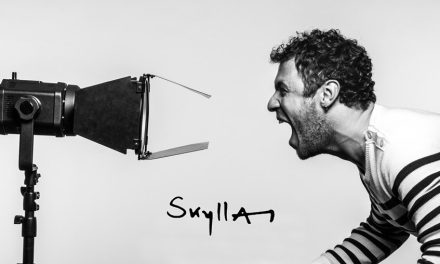“Your Greek Word On A Sunday” is a popular, award-nominated, bite-sized podcast hosted by bilingual actress Emmanuela Lia, where she introduces a new Greek word each week, explaining its origins, etymology, and connection to Greek history and culture. The podcast is available on various platforms, including Spotify, Apple Podcasts, and Soundcloud.
Emmanuela Lia is a Greek actor, translator, and podcaster, who has worked at the National Theatre of Northern Greece and performed in numerous venues in London, including The Barbican and The Lyric Hammersmith; she has appeared in films such as Brides and Alexandria, as well as TV series, including Netflix’s The Sandman II. Alongside acting, she has translated of Helen Kostopoulou’s play “Σαν να μη συμβαίνει” (As If Nothing Happened), and her translation of Andreas Flourakis’ ‘Ασκήσεις για Δυνατά Γόνατα‘ (Strong Knees) was staged at the Omnibus Theatre in London.
Each episode of your “Your Greek Word On A Sunday” is intentionally kept short, typically under two minutes, as Lia aims to provide an enjoyable piece of information rather than a formal lesson. The podcast, which recently has reached 300 episodes, has garnered a significant global following, reaching monthly listeners in 193 countries, with the majority of its audience residing in America and Europe, and as of recently,
Emmanuela Lia spoke to Greek News Agenda* about the creative process behind Your Greek Word on a Sunday, explaining how she chooses words that resonate with current events, holidays, or stories that personally fascinate her and her listeners. She reflected on why international audiences connect with the podcast, noting that people discover Greek to be less intimidating than its reputation suggests, especially when words are linked to familiar concepts, myths, or cultural references.
The episodes of your podcast “Your Greek Word on a Sunday” are wonderfully concise—just about a minute long. How do you go about choosing the one Greek word to feature each week, and deciding what historical or cultural thread to highlight?
Thank you! That’s a very good question. I try to make the episodes as relevant as possible. World news is the first thing I check when planning and, I always leave a little gap in the recordings, in case something happens and there’s a word I can link to that. Big holidays are another standard. Most of the time however, is the same way as choosing what to highlight within the word’s history. I focus on what I would find interesting to listen to. What would fascinate me in a story, a myth, a culture or a connection to my language and so far, thankfully, my listeners seem to agree with me.
The podcast is award-nominated and has developed an international following, reaching 193 countries, with most listeners in America and Europe. Why do you think international listeners connect with these explorations of modern Greek language and its influence on English?
I have Shakespeare to thank for! By popularising the phrase ‘it’s all Greek to me’ in his Julius Cesar, he made Greek feel extremely difficult and confusing. And although it’s partially true-it is, after all, a different alphabet- Greek language as a concept is not that confusing. And I think that’s what people realise when listening. They can see the mechanics behind the words in a way that is not a language lesson (something I actively tried to avoid) and then make the connection, work backwards in a way; you start by what you already know and connect it with something new and, you might be told a myth or two in the process.
Many of the words you explore have travelled from Greek into English and beyond. What’s one word whose journey across languages surprised you the most?
It’s not so much a journey across languages but rather a journey across humans. The word Encyclopaedia (ep. 222). I call it ‘a human error word’. It was created because a Roman, translating from ancient Greek, read three words as one and then Greeks found it convenient and started using it themselves. I love words that carry the human element beyond their original creation.
Your podcast has recently approached its 300th episode and has been running for eight years. Have there been any changes in your goals for the podcast from when you started until now? Looking ahead, what are your plans for this podcast, or for any new projects/podcasts relating to the Greek language?
I started this podcast without thinking much. I just wanted to do it and dived straight into it. I learned how to produce, edit, publish and market a podcast without any help. So, for the first couple of years my goal was to make it to the next season. Then it was upgrading my production value and refining the writing. And now, yes, there are a few things I’d like to do. First of all, I would love to make it available to more people. The deaf community is a priority for me. I’m looking into creating videos with sign language and, I’m currently trying to figure out how can this happen in a bilingual, cross-alphabet way.
Another thing I’d like to start doing is promoting small businesses. I’ve been running all these years without sponsors and earlier this year Audible (the audiobook company) came on board as an affiliate and that helped me a lot. I think now, I can give some time to promote small companies and have created some really affordable plans to benefit everyone. As for another projects , right now, between acting, translating and, running the podcast, my time is very limited but, my phone is full of notes for new things and I will get to all of them, eventually.
*Interview to Ioulia Livaditi
Examples of words discussed on ‘Your Greek Word on Sunday‘
Syringe: Explains the origin from the Arcadian Nymph “Συριγξ” and Pan’s musical instrument.
Stigma: Discusses its ancient Greek meaning “to mark” and its use as a “mark of disgrace,” including historical examples from Herodotus and ancient tattoo removal methods.
Telegraph: Breaks down “Τέλε” (‘something far away’) and “Γραφείν” (‘to write’), detailing the historical progression of long-distance communication technologies, highlighting “years of collaborations and building upon other people’s ideas.”
Talisman: Explores “Τέλεσμα” (‘a ritual’) and “Τελετή” (modern Greek for ritual), its journey through Arabic meaning “enigma” or “lucky charm,” and its ancient use as divine protection.
Idol: From Ancient Greek “Είδω” (‘I know’ or ‘I see’), describing an image or statue of gods, later associated with paganism in Christian texts.
Read also from Greek News Agenda:
TAGS: GREEK LANGUAGE | MODERN GREEK | PODCASTS














